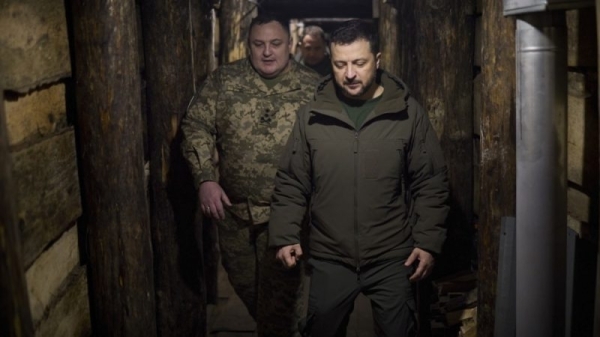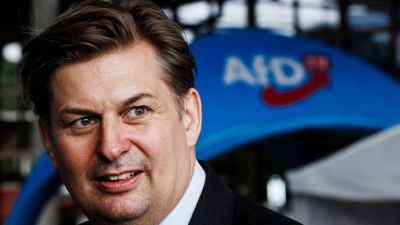Ukraine lowers mobilisation age ahead of anticipated Russian offensive

Ukraine’s President Volodymyr Zelenskyy signed a bill on Tuesday (2 March) to lower the mobilisation age for combat duty from 27 to 25, which should help generate more fighting power against Russia as support from Kyiv’s allies remains underwhelming.
The bill was ready to be signed by Zelenskyy since it was approved by lawmakers in May 2023, but he said he would only sign it if given a strong enough reason.
It was not immediately clear what prompted Zelenskyy to sign at this moment.
However, Russia has intensified attacks on energy and infrastructure in recent weeks, and Ukrainian troops have been unable to advance. Meanwhile, Kyiv said it intends to pursue attacks on targets in Russia, including oil refineries.
Mobilisation has become a contentious issue passed back and forth between Ukraine’s government and the military, with the need for more manpower weighted against risk, further destabilising the economy and increasing societal tensions.
With the initial shock of Russia’s invasion long gone, Ukraine has faced a significant reduction in the flow of volunteer fighters, and numerous cases of draft evasion have been reported.
In December, Zelenskyy said commanders had asked for up to 500,000 extra people — a “very serious number”.
Tuesday’s move now expands the number of civilians the Ukrainian army can mobilise into its ranks to fight under martial law, which has been in place since Russia launched its full-scale invasion in February 2022.
Zelenskyy separately signed a second bill requiring men given waivers from military service on disability grounds to undergo another medical assessment and a third to create an online database of those eligible for military service.
Ukraine’s parliament has also discussed a separate bill to tighten draft rules.
Russia planning new offensive
Zelenskyy’s decision comes ahead of Russia’s anticipated May or early summer offensive as Kyiv scales up efforts to build strong defensive fortifications along the front line.
The scale of the assault and the Russian military command’s willingness to commit a battalion’s worth of tanks indicates it was a priority effort, according to the ISW, possibly aiming to build upon Russian forces’ steady but marginal advances in the area.
Ukrainian officials have warned that Russian forces are accumulating personnel along several axes, but according to ISW, Russian forces would likely only be able to launch a concerted large-scale offensive operation in one operational direction at a time due to manpower and military planning limitations.
Drip-drop of Western aid
As the war continues, Ukraine is also struggling with a lack of ammunition, worsened by delays from the US and EU to provide promised military aid.
NATO members are considering transitioning coordination of military deliveries to Ukraine and a €100 billion fund to secure long-term support in the event of any significant political shift in the alliance.
Read more with Euractiv




